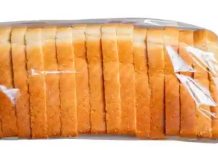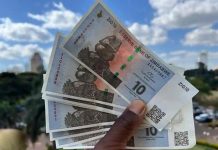THE increase in the year-on-year inflation rate to 540% for February is reflective of the weakening of the Zimbabwean dollar, characterised by the sharp increase in prices and a volatile exchange rate, casting doubt over government’s year-end inflation target of 50%.
The Zimbabwe National Statistics Agency (ZimStat) on Monday this week revealed that year-on-year inflation rose from the January rate of 473% to 540% in February.
The local unit has plummeted from ZW$29 to the United States dollar to ZW$40 last week, as the authorities struggle to shore up the value of Zimbabwe’s unstable currency. On Wednesday this week the official exchange rate for the Zimbabwe dollar fell by more than 30%.
Prices have skyrocketed as a result of the continued depreciation of the Zimbabwean dollar, stoking inflation. Refined mealie-meal is now at ZW$220, cooking oil is going for ZW$105 with the price of a loaf of bread shooting to ZW$27. A 2kg packet of Probrands salt is now selling at ZW$26,90 while a 2kg packet of Mahatma rice is now going for ZW$59,50.
Blue Ribbon 2kg flour has now shot up to ZW$84,99, while a 2kg packet of Huletts brown sugar is now ZW$46,95. The price of a 2kg pack of Sunlight washing powder is now ZW$99,99.
A tablet of Geisha bath soap now costs ZW$ 20,99. A packet of Lulu’s tissue paper is now ZW$34,99 with powdered milk shooting up to ZW$64,50. The price of the popular cordial Mazoe Orange Crush has in the last few weeks nearly doubled to ZW$88,99.
Currency and exchange rate volatility have had a serious impact on the economy and people’s livelihoods, as the price increases have further eroded incomes which have been decimated by inflation.
In a desperate bid to stabilise the exchange rate and shore up the local unit which is in freefall, government last week set up a “Currency Stabilisation Taskforce”, among a cocktail of measures
Finance minister Mthuli Ncube announced last week on Wednesday the formation of the taskforce spearheaded by his ministry and the Reserve Bank of Zimbabwe, which will also include members of the Monetary Policy Committee and Presidential Advisory Council. The new taskforce will be chaired by Ncube.
Among the measures announced by the Treasury boss is the introduction of a “managed Floating Exchange Rate System”, in which an electronic forex trading platform based on the Reuters system has been put in place with immediate effect.
“Zimbabwe has had no transparent and effective foreign exchange trading platform for a long time. Consequently, official rates have not been effectively determined, while a thriving parallel market has developed. To correct this anomaly, an electronic forex trading platform based on the Reuters system is being immediately put in place,” Ncube told a press conference last week.
“This platform will allow foreign exchange to be traded freely amongst the banks and permit a true market exchange rate to be determined.”
Treasury this week also suspended the movement of dually-listed stocks from the ZSE to regional bourses where the stocks have respective dual listings for 12 months. This, he said, was prone to abuse, leading to the distortion of the true value of the Zimbabwean dollar. The affected counters are Old Mutual, SeedCo and PPC.
Given the skyrocketing of prices amid currency volatility in the market, containing inflation to 50% by year-end is a pipedream, according to business consultant Simon Kayereka.
“It is naïve of the government to think they will tame inflation to double digit by year-end. The jump in year-on-year inflation is an indication that the inflation figure will remain in triple digits and is likely to be above 500% for the rest of the year,” Kayereka said.
“It only follows that when you stifle the supply side, demand will go up and so prices will rise. As long as the exchange rate continues to go up, so will the prices.”
He said the suspension of the fungibility of certain counters could lead to excess money being diverted from the stock market to the parallel market.
“The government is not addressing the crisis. It is just tackling the symptoms,” Kayereka said.
Economist Prosper Chitambara pointed out that inflation will not be tamed if government does not take substantive steps to tackle the currency crisis.
“By the way, prices are skyrocketing and the local currency is depreciating, we will not reach the government target of 50%, by year-end,” Chitambara said.
“The year-on-year inflation rate will remain in triple digits for the year. Inflation pressures are going to remain as long as we don’t address the currency issue. The measures by government announced last week, judging by activity on the market, have not been well received.”






